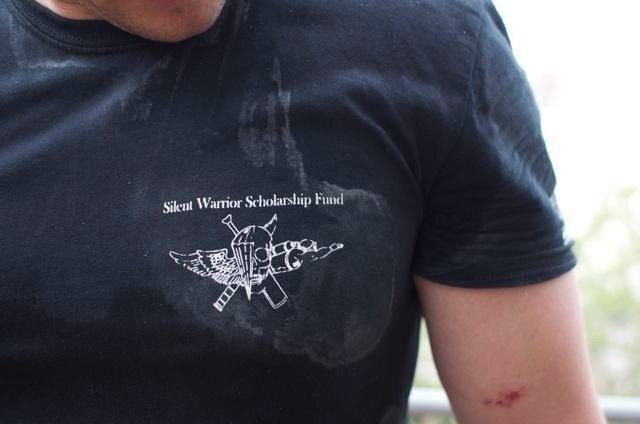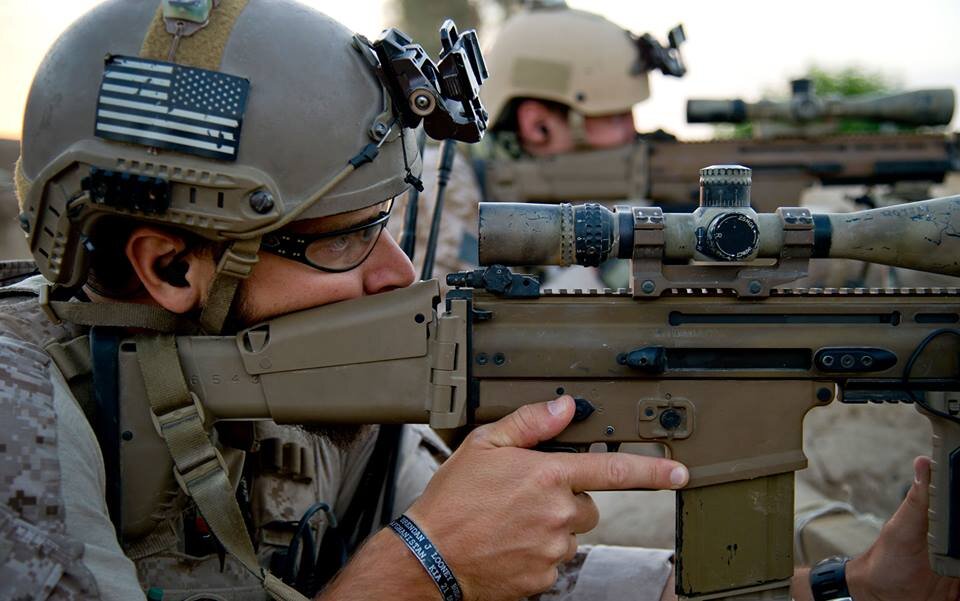
The SARC
“I think he’s just got a bloody nose, and he’s being weak. Throw him back in the pool.” Those were the first words I heard from a SARC when I was just a roper in BRC. I was sick as hell and coughing up blood on our first pool day after the screener. Doing anything but lateral movement I couldn’t hold air in my lungs to stay afloat, and I had just been pulled up from the bottom of the pool with a rifle in hand. Usually when they send you to see the doc you expect some type of sympathy, but not here. Luckily for me we had a three day weekend immediately following the day and I healed up. I came back healthy and became an asset to my team. At graduation the SARC who threw me back walked up and said “you know, that first day I didn’t think you would have what it takes. But you turned out to be pretty good, I guess maybe it wasn’t just a bloody nose.” Then he shook my hand and we didn’t see each other for years. That was my first introduction to a SARC- a steely eyed Recon Marine who happens to be in the Navy.The Special Amphibious Reconnaissance Corpsman or SARC, much like the Recon Marine, is a bastard child in Special Operations. Yesterday in the gym my team’s SARC asked me if I could write about SARC’s, since nobody ever does. There are Marines who don’t even know what a SARC is, or that they even exist. In a Recon team or MSOT they can prove to be invaluable. Some of my best friends have been SARC’s and I think since one tried to kill me that first pool day in BRC they’ve always held a special place in my mind.Often forgotten, the SARC in a team is the lifeline in a worst case scenario. They’re embedded into the team, not only a team member, but an operator first and a medic second. Every SARC I’ve taken a class from will tell you that bullets are the best medicine, and I’ve yet to have one in my team I wouldn’t want right next to me in a gunfight- which can’t be said for every Recon Marine or CSO I’ve worked with. They take pride in the fact that they are operators, and are true medical professionals at their core. Their accolades are rarely talked about, because in a team there is not separation or distinction between the Marines and their SARC. It’s not very well known, but a SARC was actually in the first team to win the Recon Challenge.In order to become a Special Amphibious Reconnaissance Corpsman Sailors must complete the normal training to become a “greenside Corpsman.” After completing their requisite training at Field Med and Corps School, a prospective SARC goes to the Basic Reconnaissance Course or BRC in Camp Pendleton, upon graduating they will attend a year long SOCOM medical course, jump school, and dive school before arriving at their unit. This process is referred to as a “pipeline.” Once SARC’s get to their unit, which will either be a Recon Bn or MSOB, they are sent to SERE school, and any follow on training their team deems necessary. Often they are pigeon holed into a medical role and will not get schools outside that realm and insert capabilities. However, on occasion you’ll see SARC’s going through other schools such as Sniper School and other individual courses based upon the team needs.Once the team is operational the SARC will be the go-to for any and all medical issues relating to the team, as well as an operator in an element. The SARC likely will not have many collateral duties within the team simply due to his responsibility for the team’s health. In country he’s the one that will patch up local nationals, hand out Motrin, and tell you that you aren’t changing your socks often enough. He’ll also be throwing bows in a gunfight, and in the unfortunate event that somebody gets hit, he’ll be right there to patch you up. They'll also provide advanced trauma care and manage multiple patients for up to three days. It’s a heavy burden on the “Doc” as they’re often called. I’ve seen some incredible men take it very hard when a guy goes down. They work tirelessly on their brothers, but sometimes there is just nothing they can do; it’s the grim reality of the profession we have chosen.I hear officers talk about “their men” and how the success or failure of the team rides on their shoulders. The burden that bears on their mind. SARC’s on the other hand, have the LIVES of their teammates in their hands. No matter what situation leadership puts them in, they’re expected to keep that team alive come hell or high water. The SARC is the one in a Recon team or MSOT turns to on their darkest day, when the outcome looks to be most grim, while they hope and pray he can save their teammate’s life. The SARC is the unsung hero of an MSOT or Recon team. But quite literally that's what they are, heroes.
Written By OAF Nation
July 14, 2014









